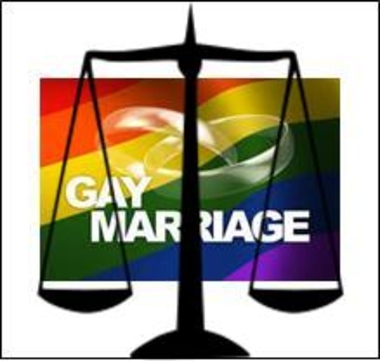Suit sets up battle of the courts in Alabama

Mobile, Ala. (AP) — A group of civil rights organizations filed a motion Friday asking a federal judge to order Alabama probate judges to issue marriage licenses to same-sex couples, and to expand a suit challenging the state's gay-marriage ban.
The motion filed to U.S. District Judge Callie Granade in Mobile includes Americans United for Separation of Church and State, the American Civil Liberties Union of Alabama, the National Center for Lesbian Rights and the Southern Poverty Law Center. The motion asks Granade to order Alabama judges to issue marriage licenses regardless of a couple's sexual orientation, and to give equal protection to marriages of same-sex couples.
It also asks for three couples to be added as plaintiffs to a suit that was filed in November challenging the state's ban. The motion says the couples sought marriage licenses in Baldwin, Mobile, Houston and Marshall counties, but were turned down.
"Alabama couples deserve the security and protection that marriage provides," National Center for Lesbian Rights Legal Director Shannon Minter said in a statement. "We hope that the court will act quickly to provide certainty to couples throughout the state and establish once and for all that Alabama's same-sex couples have the freedom to marry."
Granade is the same judge who ruled in January that Alabama's ban on same-sex marriage is unconstitutional. Forty-eight of the state's 67 counties began issuing marriage licenses to same-sex couples after the ruling. But the Alabama Supreme Court on Tuesday ordered probate judges to stop issuing licenses, saying the state retains authority over Alabama law, not a federal trial judge.
The state Supreme Court's response to Granade's ruling drew sharp criticism from gay rights advocates. Alabama is the only state to resist a federal trial or appeals judge where bans against same-sex marriage have been ruled unconstitutional.
Alabama's Supreme Court justices have said that state courts may interpret the U.S. Constitution independently or contrary to federal courts. The U.S. Supreme Court is expected to settle the issue later this year.
Copyright 2015 The Associated Press. All rights reserved. This material may not be published, broadcast, rewritten or redistributed.
The Gayly – March 7, 2015 @ 1:20pm.





